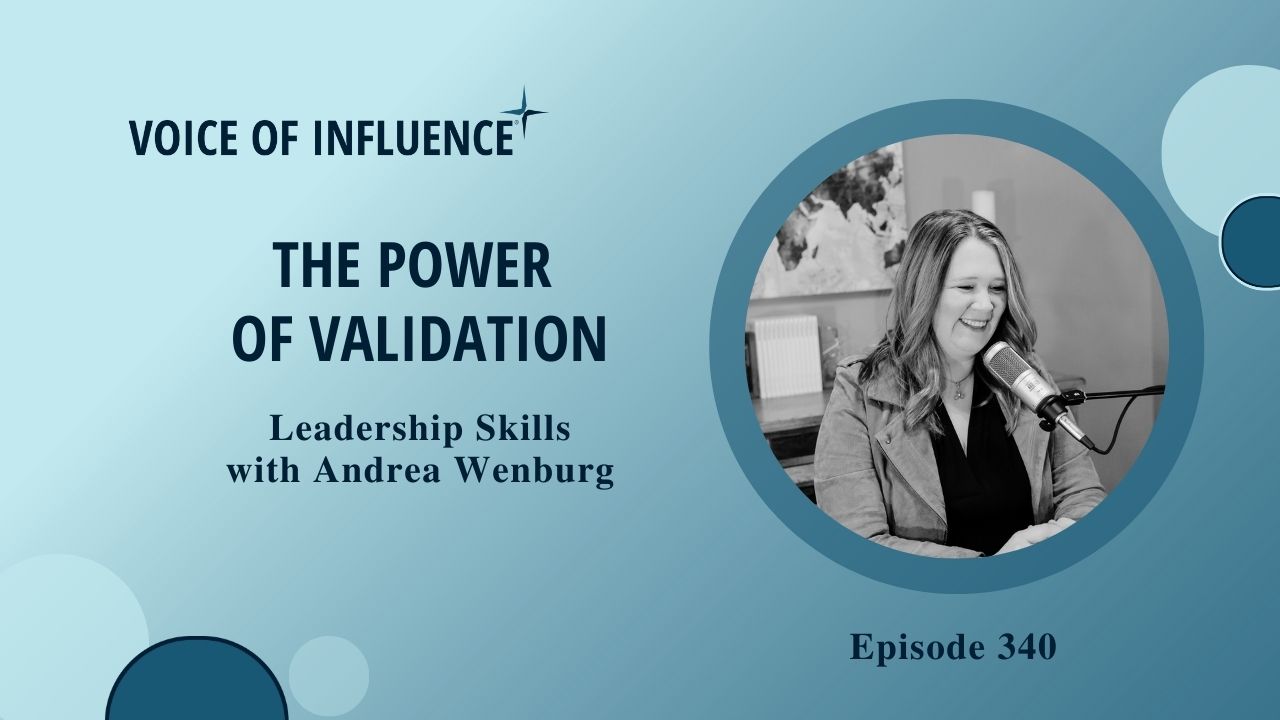Leadership Skills: The Power of Validation
Andrea Wenburg from Voice of Influence discusses the impact of others on your decision-making process. She emphasizes the importance of listening, reflecting, and acknowledging the influence of others’ words on your thoughts and actions. Wenburg explores the value of validating others’ perspectives, even if you do not ultimately agree with their suggestions, and highlights how this validation can encourage future sharing and diverse viewpoints. She underscores that embracing others’ input is a gift that strengthens communication and fosters mutual respect.
00:00 Understanding the Impact of Others
14:16 Listening and Reflecting
14:36 Considering Different Perspectives
15:13 Acknowledging Influence and Change
15:42 The Power of Validation
Imagine holding a framed note on your desk—a tangible reminder of the moment someone validated your voice and transformed your trajectory. For me, that note came from a respected author and psychologist whose work had deeply influenced my life. When he acknowledged my challenge to address a critical topic, he didn’t just validate my perspective—he validated me. That simple act made me believe my voice mattered, and it became a turning point in my journey.
Why does validation matter so much? Because it fuels the courage to take initiative.
Why Some Voices Stay Silent
Not everyone feels empowered to speak up or take proactive steps. Our willingness to use our voice is often shaped by our experiences.
-
When a child’s ideas and concerns are acknowledged by parents, teachers, or leaders, they learn early on that their voice is valued.
-
Conversely, when people are dismissed, criticized, or ignored, they may begin to hold back, fearing rejection or failure.
Even seasoned leaders, including CEOs, crave validation. Regardless of your position, knowing your voice is heard and your perspective is valued can make all the difference.
Three Steps to Validate a Voice
If you want to foster a culture where people feel empowered to speak up and take initiative, start with these three steps:
-
Listen with Intent
Look beyond the words to understand the heart of someone’s message. Active listening isn’t just about hearing—it’s about genuinely engaging and asking clarifying questions to ensure you grasp their intent. -
Reflect Back
Summarize and repeat what you’ve heard. Phrases like, “What I hear you saying is…” give the speaker confidence that they’re being understood and allow for clarification if needed. -
Describe the Impact
Let the person know how their input has influenced you, even if it didn’t change your decision. Saying, “Your perspective gave me a new angle to consider,” or, “I appreciate how your idea challenged me to think differently,” affirms their contribution.
Why It Matters
When leaders validate voices, they create a culture of trust, engagement, and innovation. People are more likely to bring their best ideas to the table when they know their perspective will be valued, even if it doesn’t result in immediate action.
As I reflect on that framed note on my desk, I’m reminded of the profound impact a few validating words can have. They don’t just acknowledge someone’s voice—they empower them to use it.
Call to Action
If you’re ready to cultivate a culture where every voice matters and people feel empowered to take initiative, let’s connect. Visit voiceofinfluence.net to learn more about our trainings, coaching, and consulting programs.
Because every voice matters—and it’s time to let them know it.
 Give great, effective feedback!
Give great, effective feedback!
This show is brought to you by the Deep Impact Method free course. Handle problems and present changes with care and influence. Register for the free 30-minute course here.

